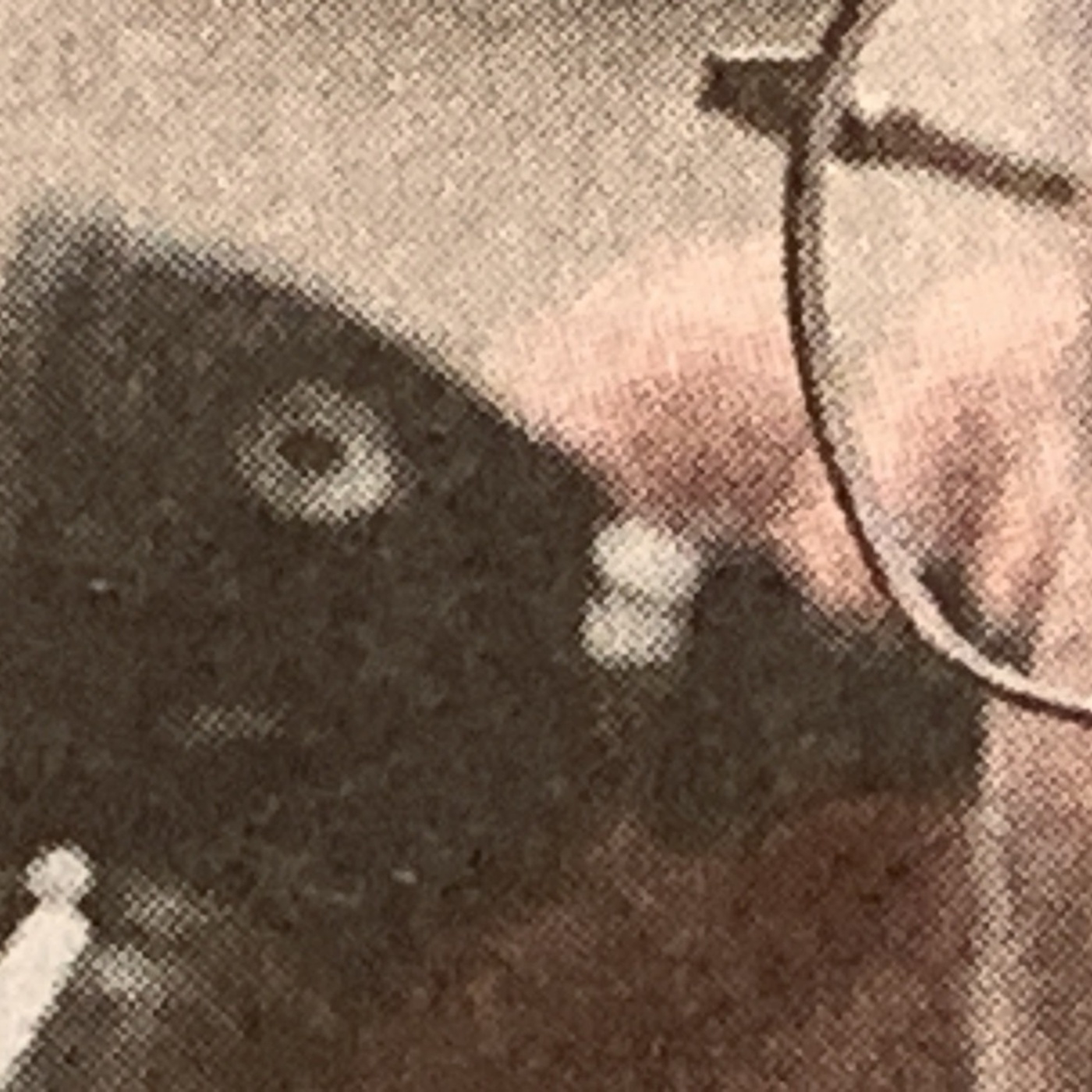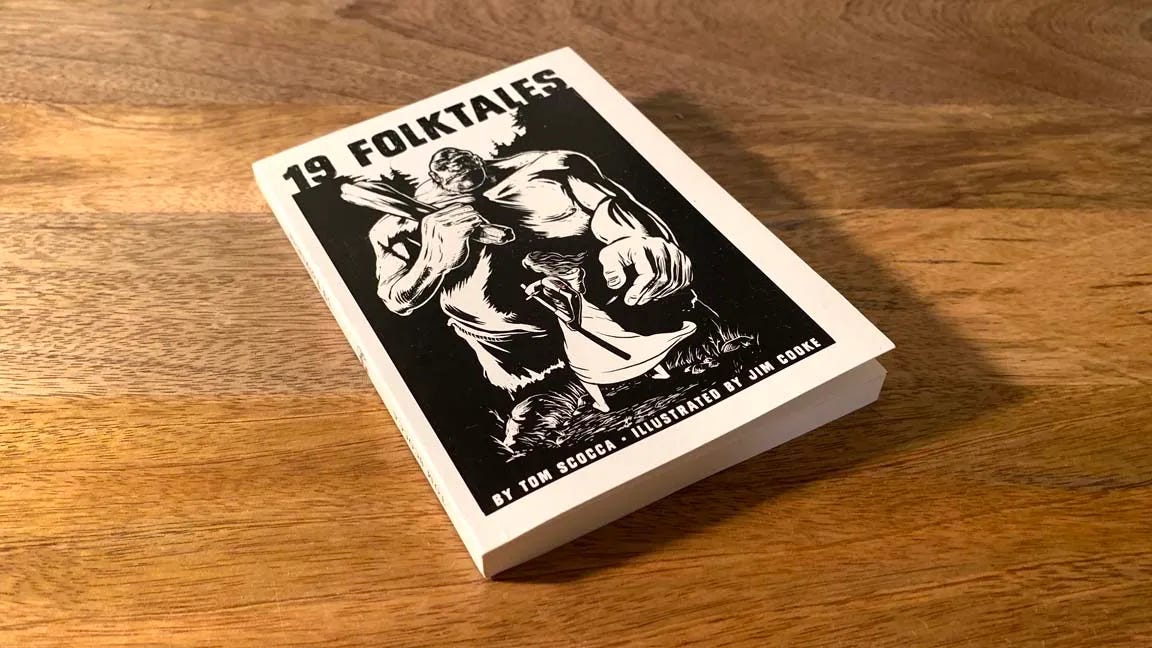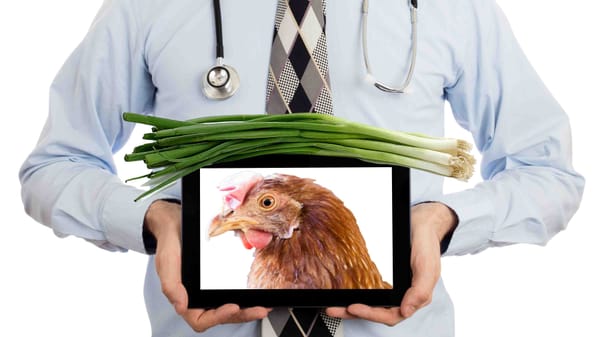THE WORST THING WE READ™: A basket of nothing
Indignity Vol. 4, No. 63

THE WORST THING WE READ™
What Can Democrats Give Rural Voters?
RURAL AMERICA LOVES Donald Trump. Or does Rural America hate who Donald Trump hates? The latter notion is all wrong, Nicholas F. Jacobs wrote in Politico Magazine. There is a new book out, White Rural Rage, by Tom Schaller and Paul Waldman, that calls white rural voters "anti-democratic," conspiracy-minded, and bigoted, and Jacobs, the author of The Rural Voter: The Politics of Place and the Disuniting of America, denounced the White Rural Rage argument as completely wrongheaded.
Accusing white rural Americans of being driven by rage, Jacobs wrote, will "marginalize and demonize a segment of the American population that already feels forgotten and dismissed by the experts and elites." What Democrats and big-city liberals might want to call "rage," he wrote, is correctly understood as "resentment—a collective grievance against experts, bureaucrats, intellectuals and the political party that seeks to empower them, Democrats."
The key difference, Jacobs wrote, is that unlike rage, resentment "is rational, a reaction based on some sort of negative experience. You may not agree that someone has been treated unfairly, but there is room to empathize." And liberals' belief in white rural rage gets in the way of that necessary empathy, he argued, continuing a "reflexive condescension and dismissal of rural voters that escalated during the George W. Bush administration and peaked with Hillary Clinton’s campaign and her dismissal of Trump supporters as a 'basket of deplorables.'”
What would expressing real concern for rural voters sound like? Jacobs explained that liberals need to find a whole new way of looking at Trump supporters. Trump's rural voters are
people who feel the government has let them down, the economy has let them down, nobody cares about them, nobody worries about what happens to their lives and their futures; and they're just desperate for change. It doesn't really even matter where it comes from. They don't buy everything he says, but – he seems to hold out some hope that their lives will be different. They won't wake up and see their jobs disappear, lose a kid to heroin, feel like they're in a dead-end. Those are people we have to understand and empathize with as well.
Just kidding! That wasn't Jacobs. It was Hillary Clinton, in those same remarks now known as the "Basket of Deplorables" speech.
The whole point of the Basket of Deplorables speech was that there was more than one basket of Trump supporters. Clinton was telling her audience—the audience at the LGBTQ for Hillary Gala—that despite the visible, undeniable bigotry in the Trump movement, some of it directed specifically at them, not every potential Trump voter was a bigot or irredeemable. She was urging them to understand why ordinary Americans might be hungry enough for change to vote for someone like Trump.
And then the Trump movement responded by declaring that no, there was only one basket, that the racists and homophobes and xenophobes did, in fact, represent them all. The press, in turn, adopted the Trump position that Clinton had insulted everyone who supported Trump, and since her defeat has spent the next eight years, countless words, and who knows how much travel budget recreating exactly the message about understanding and empathy that Clinton had delivered in the first place—insisting, all the while, that no one had ever thought of it before.
Eventually, grinding along producing the same product over and over again, the machinery spat out Jacobs' Politico piece. The premise, in this case, was that Jacobs is an expert on the political outlook of rural Americans:
My job and passion is to pore over reams of data, including some of the largest surveys of rural voters ever conducted. Sitting on my computer are detailed responses from over 25,000 rural voters that I have conducted over the last decade and used to publish a range of peer-reviewed and widely cited research. And I’ve done it all largely to make sense of why rural voters are continually drawn to the Republican Party.
Armed with this knowledge, Jacobs wrote that the authors of White Rural Rage had made serious conceptual and methodological errors and had misunderstood the real findings about rural America, including his own. But there was a strange void in the piece where the different, correct facts would go. If Jacobs is right that the Democratic Party has been losing rural America to Republicans because of things "Democrats have been getting wrong for decades"—if the red rural map reflects rational resentment instead of irrational rage—then presumably it should be possible to name some clear examples of things Republicans have done to make their party more attractive to rural voters, and of things that the Democrats could do to win the voters back.
Yet on those twin subjects, the piece had nothing to say. Jacobs asserted that "Republicans are the political party that has figured out how to speak to that rural identity effectively" without providing a single example of anything Republicans have spoken, let alone done. Why not? As for the Democrats, Jacobs wrote:
I sympathize with the idea that...Democrats arguably do more for rural areas and rural residents than Republicans do. After Democrats passed Obamacare, rural residents stood to gain the most in states that expanded Medicaid, but two-thirds of uninsured rural residents missed out because they lived in states that refused to expand coverage — and those states were almost exclusively governed by Republicans. Paul Krugman is often quick to point out that “ because rural America is poorer than urban America, it pays much less per person in federal taxes, so in practice major metropolitan areas hugely subsidize the countryside.” And it is true that the Biden administration is currently overseeing billions in new federal spending that is disproportionately going to rural communities across America.
Are all those contributions counterbalanced by things the Democrats have done wrong? Jacobs wrote:
Sure, “Hollywood didn’t kill the family farm and send jobs overseas. ... College professors didn’t pour mountains of opioids in rural communities,” as Schaller and Waldman write. But rural people do know that federal agriculture and trade policies pushed by Democrats and Republicans did destroy many rural economies. Rural people do know that liberal elites stood by as rural students became one of the least likely groups to attend college, and one of the most likely to drop out. So they benefit from Obamacare and vote against it; can rural people contain multitudes, too?
Note that one complaint was about something that "Republicans and Democrats" did, and another was about how "liberal elites stood by"—provocation by inaction, evidently. A political program that alienated an entire swath of the country must have had some really memorable specifics, mustn't it?
Ah, but: "the problem Democrats haven’t been able to solve isn’t policy; it’s politics." Politics such as the "dismissal of Trump supporters as a 'basket of deplorables'”? Obviously, historically, Clinton's speech failed as political rhetoric. It united the people she'd hoped to separate out from each other, and its plea for understanding fell on unlistening ears. But that doesn't change what she said, or that it was the opposite of what Jacobs chose to say that she'd said.
Somehow, for Jacobs, the job of making rural right-wing politics sound rational required him to substitute mythology for the factual record. In place of particulars, he wrote about vibes: "how rural voters’ choices are frequently rooted in values and place-based identities that place a strong emphasis on self-reliance, local control and a profound sense of injustice regarding the lack of recognition for rural contributions to society."
"Injustice regarding the lack of recognition" was a double negative built entirely on abstraction. What kind of recognition would constitute justice—or rather would give people a sense of justice? What is it, exactly, that this resentment resents? Later, Jacobs circled back to describe the resentment again: "that sense of place, the anxieties felt about one’s community, the deeply engrained feeling that urban America would erase rural ways of living if given the chance."
Which deeply ingrained feeling was that, again? That a distant enemy is scheming against them, plotting to exterminate their way of life? There are words for that strain of politics, but "rational" isn't usually one of them.

WEATHER REVIEWS

New York City, April 9, 2024
★★★★ Only clouds impeded the sun, and those not very much. The only thing about the day that demanded to be witnessed was the temperature heading for the 70s, under an sneeze-inducing glare. A long brown rat sprinted in full daylight from the edge of the schoolyard on 104th across the wide sidewalk and into a sewer drain. The city smells were not quite the suffocating ones of high summer; the odor of waste along the street had a barnyard note to it, as if a confused horse carriage had gone by. The line in the post office was too long but it was fine to keep walking and let the errand be done some other time, when it might feel more like a duty. Magnolia petals stood up and apart above the Broadway median. Toward sunset, the warmth had retreated and there was a jangling coolness on the air.

EASY LISTENING DEP'T.
It's getting easier than Sunday Morning getting back to Easy, as in Listening! This first rectangle, below, is the podcast file right here on GHOST. You can just stay right here and click that sideways black triangle and listen to five minutes and 41 seconds of podcast.
This next rectangle delivers you to the mighty podcast.indignity.net and 252 episodes of INDIGNITY MORNING PODCAST. Exciting!

Visit podcast.indignity.net for the RSS thing and also Apple stuff, and now also back on Spotify:
Let us know at indignity@indignity.net if you encounter difficulties with the links. We're still trying to see what works, thank you for trying to listen! Podcast!

SANDWICH RECIPES DEP’T.
WE PRESENT INSTRUCTIONS in aid of the assembly of sandwiches from New Presentation of Cooking with Timed Recipes, by Auguste Gay with the collaboration of Anne Page. Published in 1924, and now in the Public Domain and available at archive.org for the delectation of all.
ORANGE PEEL AND CHICKEN SANDWICH
For each sandwich
2 slices of buttered bread
3 slices of cold chicken
1 tablespoon mayonnaise sauce
1/2 orange, peel only
Chop the orange peel very fine and mix with the mayonnaise sauce. Place the slices of chicken on one slice of the bread. Spread the mixture over the chicken and cover with the other slice of bread. Do not press.
PORK, LETTUCE AND PICKLE SANDWICH
For each sandwich
2 slices of buttered bread
1 sour pickle, medium size
2 leaves of lettuce
1 slice of cold roast pork
1 tablespoon ketchup
Chop the pork, then chop the pickle and lettuce leaves together. Add to the mixture the ketchup and mix well. Spread on both slices of bread, put together and press lightly.
If you decide to prepare and attempt to enjoy a sandwich inspired by this offering, be sure to send a picture to indignity@indignity.net.

MARKETING DEP'T.

The second printing of 19 FOLK TALES is now available for gift-giving and personal perusal! Sit in the strengthening sunshine with a breezy collection of stories, each of which is concise enough to read before the damp ground seeps through your blanket.

HMM WEEKLY MINI-ZINE, Subject: GAME SHOW, Joe MacLeod’s account of his Total Experience of a Journey Into Television, expanded from the original published account found here at Hmm Daily. The special MINI ZINE features other viewpoints related to an appearance on, at, and inside the teevee game show Who Wants to Be A Millionaire, available for purchase at SHOPULA.







